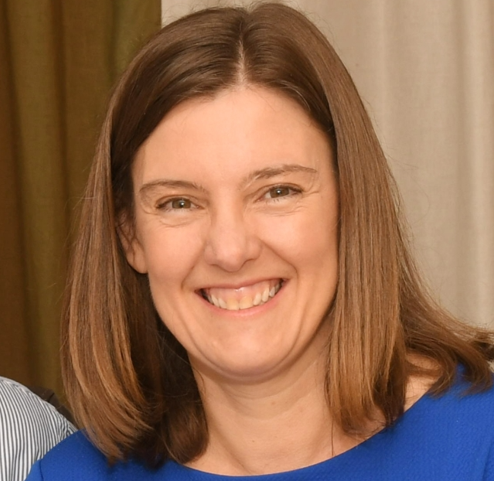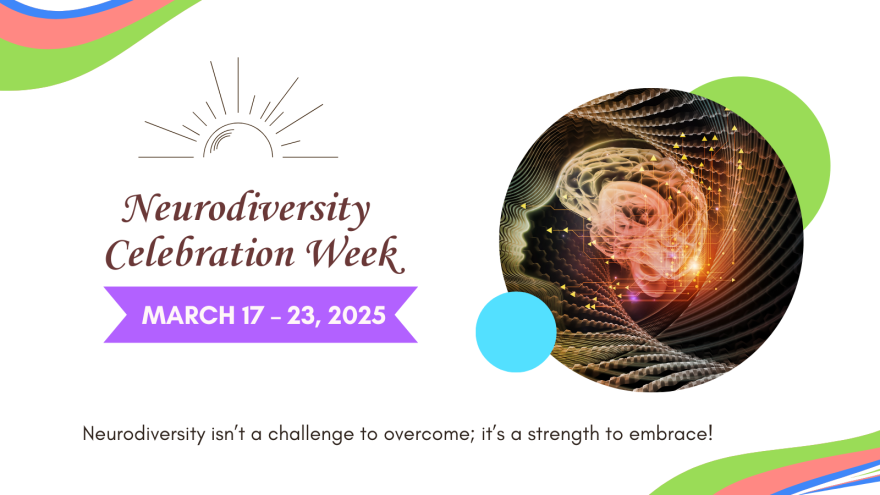Personal Note from Rachel

Welcome to our early March edition! In this first of eight monthly deep dives into core competencies of leading with a coaching style, we’re focusing on Ethical Practice—the cornerstone of impactful leadership in coaching, healthcare, and pharmacy.
At the end of this month, and at the end of each quarter, our newsletter will feature a special quarterly review, where we’ll reflect on our wins and challenges and set our sights on a strong, purpose-driven next quarter.
Today, we also join in celebrating International Women’s Day and Neurodiversity Celebration Week—two global initiatives that remind us that ethical practice extends beyond confidentiality and accountability to embrace inclusivity, equality, and the full spectrum of human potential.
How do you envision ethical practice informing your leadership journey as the year progresses?
Celebrating Inclusivity: International Women’s Day & Neurodiversity Celebration Week

International Women’s Day (8th March) – Accelerate Action for Gender Equality
As we approach International Women’s Day 2025, we are reminded of the urgent need for ethical leadership in advancing gender equality. Despite the progress made, systemic barriers persist—so much so that the World Economic Forum estimates full gender parity may not be achieved until 2158. This year's #AccelerateAction campaign challenges us to confront these barriers head-on and commit to actions that elevate women in decision-making and empower their health and economic well‑being.
What is one commitment you can make today to elevate women’s representation and create a more equitable environment in your organisation?
Neurodiversity Celebration Week (March 17 – 23, 2025)

In celebration of Neurodiversity Celebration Week, I’m excited to share insights from a transformative 20-week program, Neurodiversity in Coaching: Context and Skills for Effective Practice, with Animas Centre for Coaching. This journey has deepened my understanding of neurodiversity's role in leadership and coaching.
Neurodiversity celebrates the natural variations in human neurological development—recognising differences like ADHD, autism, and dyslexia as strengths rather than deficits. In our workplaces and healthcare settings, ethical practice means understanding that every individual’s unique perspective can drive innovation. With diversity of thought being such a strategic advantage and 1 in 5 people estimated to being neurodiverse, it is essential to create environments that not only accept but celebrate these differences, ensuring that every voice is valued.
How can you create an environment where neurodiverse talents are not only accepted but celebrated as integral to your team’s and your business's success?
Why Ethical Practice Matters
In every facet of coaching, leadership, and healthcare, trust is our most valuable currency. Picture yourself as a leader, coaching a team member who confides they’re feeling overwhelmed at work and uncertain about their future. In that vulnerable moment, they’re not just seeking advice—they’re entrusting you with their confidence, expecting you to maintain confidentiality, respect their autonomy, and provide a safe space for honest exploration.
Without ethical integrity, this trust can be broken, jeopardising not only individual development but the very fabric of our professional relationships. The International Coaching Federation (ICF) and the Pharmacy Core Competency Framework remind us that ethical practice is non-negotiable because it:
✅ Ensures clients feel safe to share openly
✅ Protects professional credibility
✅ Establishes clear boundaries between various roles—whether you’re a healthcare professional, employer, coach, or consultant
✅ Reinforces a culture of accountability and professionalism
When faced with challenging conversations, how do you ensure every decision you make builds trust and safeguards your team’s confidence while championing inclusivity?
Key Ethical Principles
As you refine your approach to leading with a coaching style, these guiding principles are useful to keep at the forefront:
Integrity & Honesty
Be transparent about your coaching approach. Leadership with a coaching style isn’t about diagnosing or prescribing solutions. It’s about guiding, challenging, and supporting coachees in discovering their own answers. Setting clear, realistic expectations and being truthful about the leadership style you are adopting is essential.
Confidentiality & Boundaries
Maintaining confidentiality is paramount, but be aware that there are times when ethical or legal obligations require disclosure (e.g., potential harm). Being upfront about these limits fosters trust and clarifies expectations.
Respect for Client Autonomy
Your role, as a coaching style of leader, is to empower, not to direct. Honour your team member’s decisions—even if they differ from what you believe is best. If a different leadership style is more appropriate for a given situation, it’s an ethical imperative to be transparent from the outset.
Avoiding Conflicts of Interest
Recognise and openly address any potential conflicts when coaching employees, peers, or fellow pharmacists. Transparency ensures that your coaching relationships remain balanced and trustworthy.
Which of these ethical principles resonates most with you, and how do you plan to embody it in your leadership practices?
Practical Steps to Uphold Professional Ethics
-
Clarify Agreements: Define expectations, confidentiality boundaries, and desired outcomes at the start of every conversation to prevent misunderstandings and foster trust.
-
Stay Within Your Scope: Recognise when a situation exceeds your expertise. Issues like severe burnout or mental health concerns require referral to appropriate professionals.
-
Engage in Self-Reflection: Regularly evaluate your own approach. Ask yourself: Am I truly listening without bias? Have I clarified roles, expectations and desired outcomes with the other person(s)? Self-awareness is the foundation of ethical practice.
-
Seek Supervision or Peer Support: Ethical dilemmas arise for even the most experienced leaders. Having a mentor or supportive peer group can provide valuable insights.
What practical step will you commit to this week that can enhance the ethical integrity of your interactions?
Intersection with Pharmacy Core Competencies
Ethical practice isn’t just vital in coaching—it’s also a core pillar of pharmacy practice. As outlined in the Pharmacy Core Competency Framework, ethical practice supports:
-
Patient Confidentiality & Safety: Just as ethical coaching protects client confidentiality, safe medication practices and transparent communication ensure patient trust and safety.
-
Professional Integrity: Ethical maturity in both leadership and pharmacy builds professional credibility and reinforces accountability.
-
Effective Communication & Collaboration: Clear, honest interactions—whether with patients or team members—are the bedrock of quality healthcare and exemplary coaching.
How can you integrate these core competencies into your daily practice to ensure both ethical leadership and optimal patient care?
Professional Development Opportunities
As we wrap up this edition, I invite you to consider how you can elevate your practice through tailored professional development that bridges pharmacy, coaching, and leadership. Ask yourself:
🤔Are you ready to more fully integrate ethical leadership into your professional life, from patient/client care to team management?
🤔How could personalised coaching and targeted mentoring empower you to drive innovation, inclusivity, and excellence in your workplace?
🤔What steps are you choosing to take to transform ethical practice into an increasingly dynamic force for change in your organisation?
🤔In what ways can you harness these opportunities to unlock your full potential and inspire those around you?
🤔How well do you know yourself and what drives you - your strengths and your saboteurs?
Discover how our curated programmes could help you lead with ever increasing integrity and create a culture of learning, growth and ethical excellence.
As part of your personal, professional and business development for 2025, we are thrilled to share a range of Professional Development Opportunities for pharmacists, coaches, leaders, and teams, including:
-
On-Site Pharmacy Practice Audit (PAS): Secure an audit to review and enhance your pharmacy’s ethical protocols—ensuring that patient confidentiality and professional integrity are upheld.
-
4FrontPharmacyOnline: Join our self‑directed learning platform to update your team on ethical OTC communication practices, setting a high standard of care.
-
Pharmacist Coach Academy: Book a 6-month coaching slot for one‑to‑one coaching focused on leading with integrity—helping you navigate ethical dilemmas with confidence in both pharmacy and coaching contexts.
-
One-off "90-Minute Strategy Session" - Ethical leadership matures with increasing self‑awareness. To lead with integrity, it's helpful to understand both your strengths and the saboteurs that may hold you back. I invite you to complete the Identify Your Saboteurs and VIA Strengths Finder Survey—two powerful tools to enhance your self‑awareness and lay the groundwork for ethical practice. Once you’ve gained these insights, click the link to book a one‑to‑one session with me. This session is your opportunity to transform personal insights into actionable strategies that reinforce your commitment to integrity, inclusivity, and professional excellence.
-
Just Get It Done CPD Mentoring: Book a 90‑minute laser‑focus session for pharmacists to prepare CPD ePortfolio Review re‑submissions, reinforcing your commitment to ethical practice and professional excellence - book now.
-
ICF Mentor Coaching: Elevate your coaching skills with competency‑based mentoring that deepens your awareness of how ethical practice, integrity, and professional standards are demonstrated in coaching sessions.
-
Cross-Professional Supervision: This is for you if you are a coach, mentor and/or team leader who wants to engage in a session to navigate ethical, relationship, and performance‑related dilemmas—deepening your practice and restoring your energy while upholding the highest standards of professionalism.
-
Lead With Coaching 1-2-1/Team VIP Strategy Day(s): Book a one‑to‑one strategy session to align your values with actionable leadership practices, ensuring every decision reflects care, accountability, and professional integrity.
-
Lead With Coaching Programmes: Join our cross‑industry, group leadership development programmes to cultivate a team culture rooted in ethical practice and professional excellence, where inclusivity and integrity are honoured. Our leadership development programmes are designed to develop you and your team to lead with a coaching style of leadership - enrolling now for May and Sept 2025.
Conclusion
Together, let’s explore how our practices in coaching, leadership, and healthcare can continually become more and more ethically grounded and forward-thinking. By embracing and championing gender equality and neurodiversity, we can all help accelerate progress and build a fairer, more inclusive future.
Thank you for joining me on this journey. I look forward to our continued exploration of ethical practices in our professional lives.
Warm regards,
Rachel Dungan
Subscribe on LinkedIn
|